Teachers constantly give their time, their thoughts, and their care, but only rarely do they have the time and space to take things in, to receive rather than to give. The point of professional development is to give busy staff a day which doesn’t involve having to give but rather just take in new ideas, to receive interesting, thought provoking insights from some leading educators, and use it as time to reflect on what we currently do and to discuss those ideas and thoughts with colleagues.”
——Mark Bishop
Executive Headmaster
On 3rd December, Pao School’s Professional Development (PD) Day took place, providing an opportunity for teachers on all three campuses to continue honing their teaching skills. The day built on previous professional development sessions that the staff had taken part in, demonstrating how PD at the school isn’t confined to a single day; rather, it is a continuous process.
High School
PD day at the High School focused primarily on three topics: Chinese culture, bilingual literacy and global citizenship. The school hopes that in-depth discussion on boosting cross-cultural cooperation and understanding will help Chinese and foreign teachers to better align their respective work. The day long training was led by experienced Chinese teachers, helping foreign teachers better understand China’s past and present as well as gain insights about the country’s future trajectory. The training covered a broad array of sub-topics, such as how China’s porcelain exports in the 17th and 18th centuries shaped its relations with the world, common Chinese homophones, Chinese cultural taboos, and Chinese music and traditional opera.
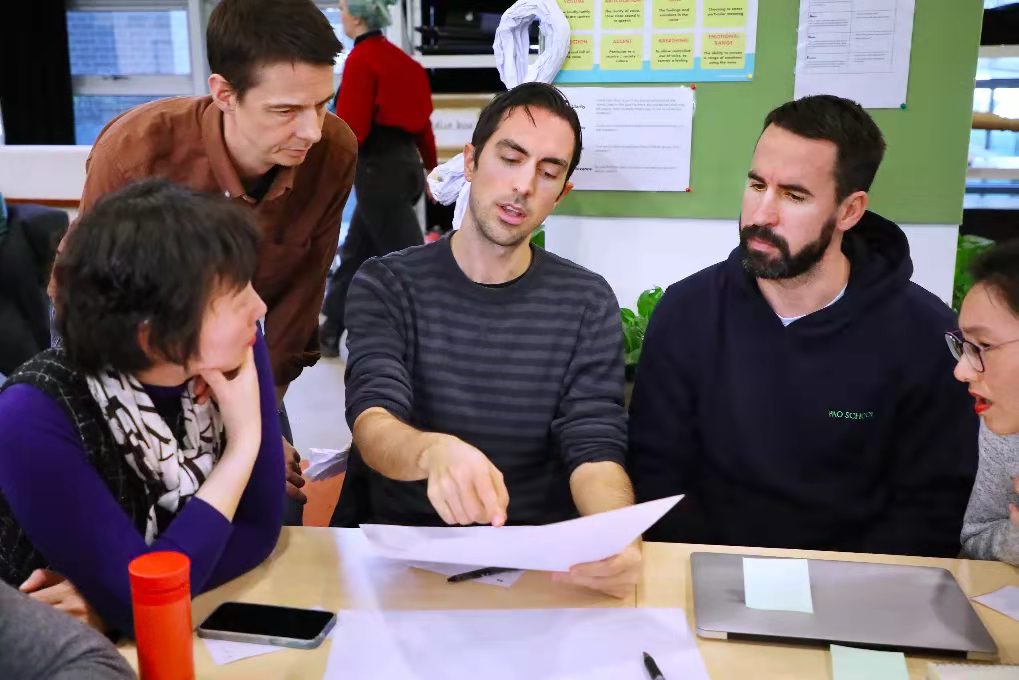
Yingyu Le, Head of High School Chinese, and High School Chinese teacher Lina Chen introduced Chinese homophones to foreign teachers, focusing on examples using colour, numbers, references to the Lunar New Year and symbols. Ms. Le and Ms. Chen explained to the foreign teachers how homophones have become such an integral part of the Chinese language and why they are uniquely expressive.
For their part, foreign teachers shared many lively anecdotes from their everyday life experiences, as well as some distinctive aspects of their own respective languages and cultures. Everyone thoroughly enjoyed the activity, which showed that mutual respect in cultural exchanges is key to increasing cross-cultural understanding and tolerance.
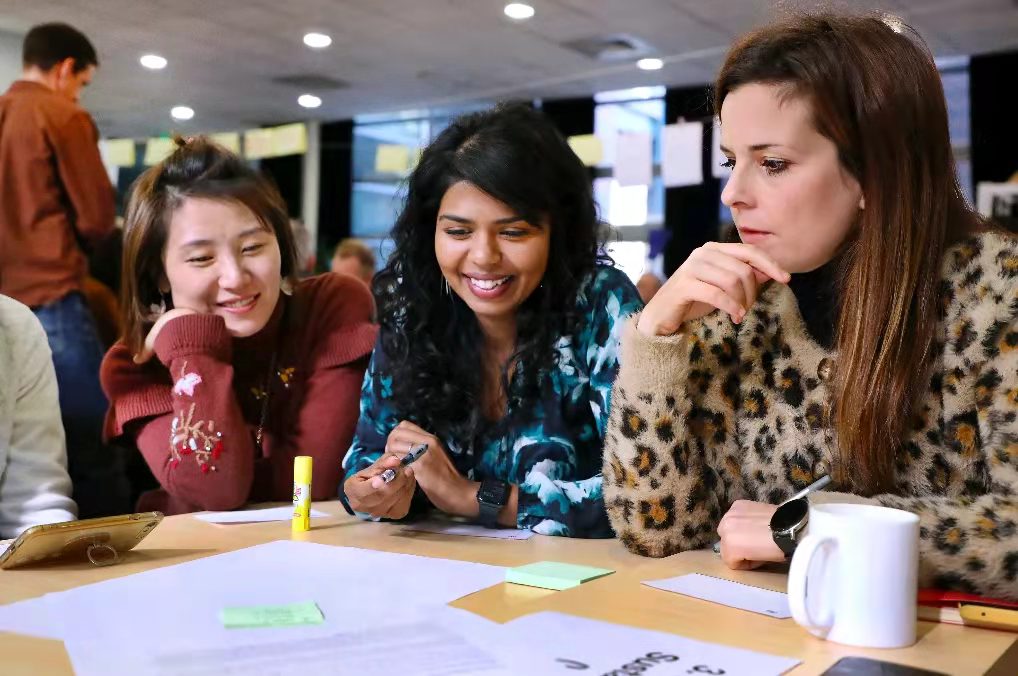
Martin Jones, High School Director of Co-Curricular Activities, participated in the “Where does China come from?” presentation by Head of High School Humanities Coco Shi and High School Geography Teacher Andrea Hu. Mr. Jones said, “I really enjoyed the presentation today. The geography of China is fascinating, in particular the effect of the Tibetan plateau on the climate of Shanghai. I lived in the Middle East, at roughly the same latitude, for many years and the climate is so very different to here. Now I know why.”
English teacher Jessica Cohen shared, “I had lot of fun and also learned so much from the history presentation. The information shared is incredibly helpful to know, and it gave me even more reasons to love China and the marvelous people in it.”
Through experiencing Chinese cultural activities together, the teachers could gain new layers of understanding. On the one hand, they showcase attributes of Chinese culture. On the other, they allow Chinese and foreign teachers to get to know each other better; the teachers discover how they share common traits while respecting each other’s differences. This training session featured a number of interesting presentations, including by foreign teachers who have lived in China for many years and speak Chinese fluently. Further, both foreign and Chinese teachers talked about the core values of compassion, integrity and balance and how they are in interpreted in Chinese and Western philosophy.
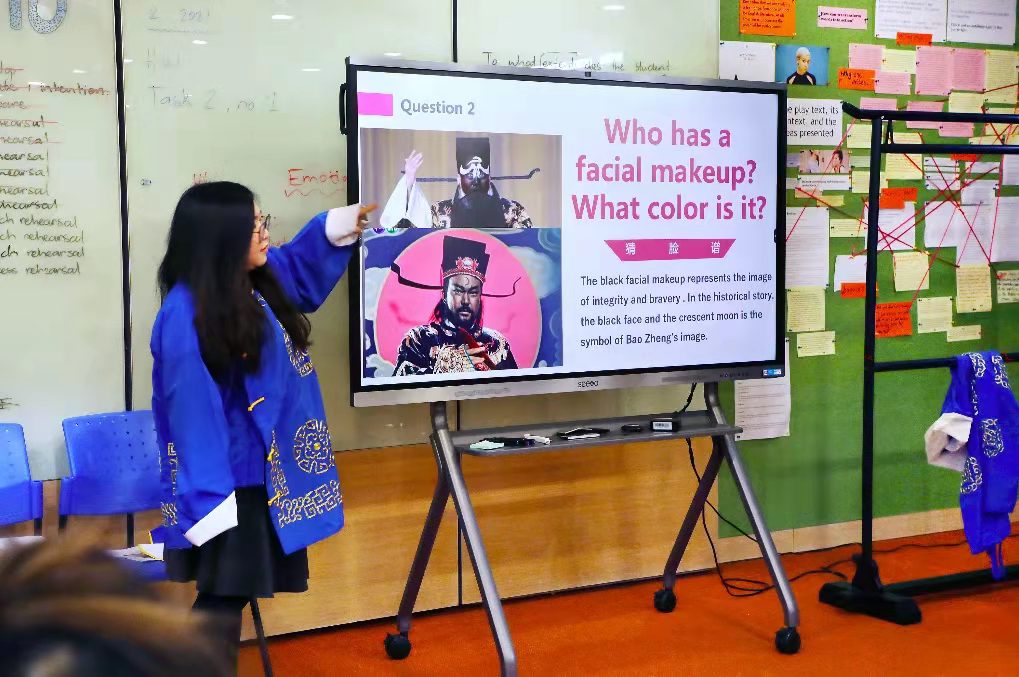
The Songjiang campus carries on Chinese cultural traditions through both staff training and weekend staff activities. Further, under the guidance of Zang Na, Dean of High School External Affairs, the High School holds a Chinese cultural experience event every month.
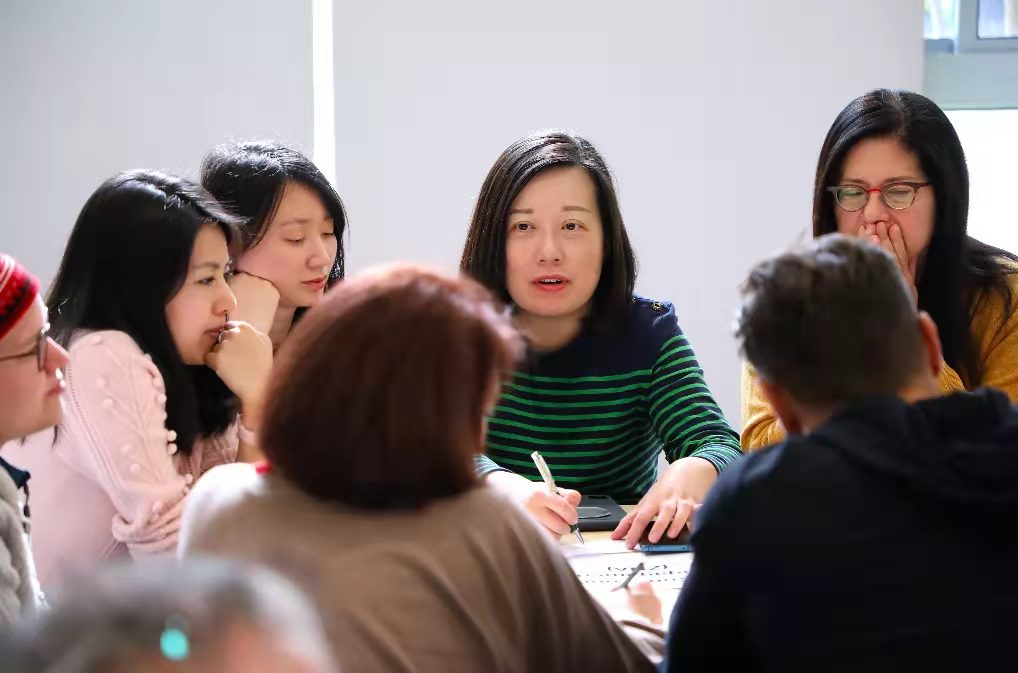
In the morning, staff took part in a session dedicated to bilingualism, during which they had the opportunity to hear from both current and former students. During the session, Melody from the Class of 2021 shared reflections on how she prepared for academic and social life overseas via video. In addition, current students answered questions from teachers about bilingualism and how their teaching could be adapted to enhance bilingualism.
High School Director of Teaching and Learning, Jordan Anderson, commented, “It was great for our students to be able to reflect upon what it means to be bilingual. It also allowed teachers, some of whom are not bilingual, to get a further insight into the bilingual brain and how we can best adapt our teaching to get the best out of our bilingual students.”
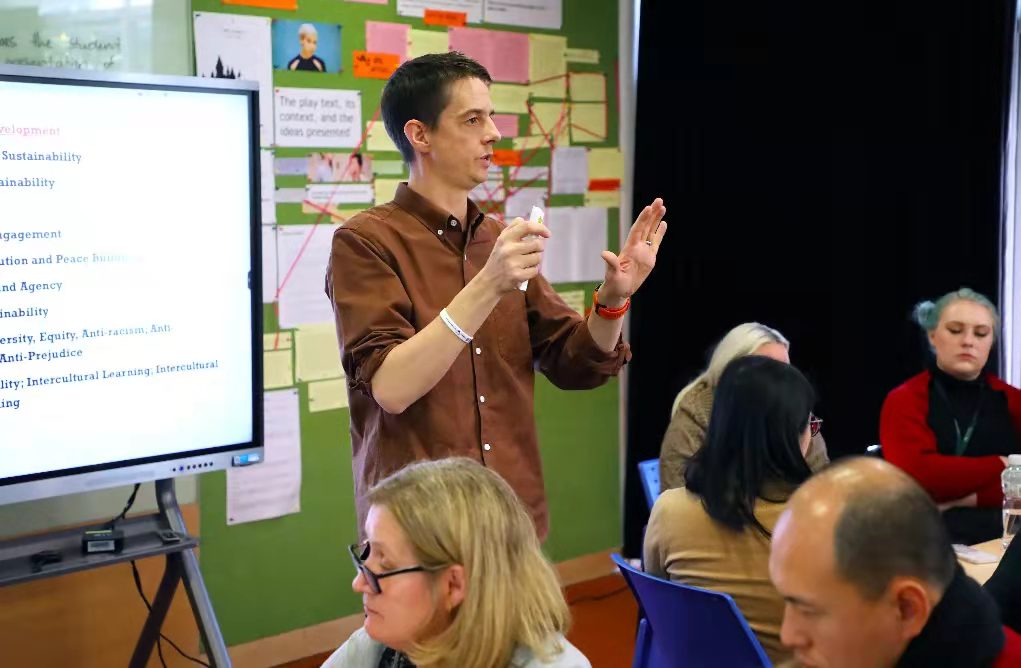
The Global Citizenship session aimed to help staff develop their understanding of global citizenship and intercultural learning. The session was led by Duncan Weller, Dean of High School Student Life, and James Lyng, High School Deputy Principal, who had received outside training on the topic earlier in the year with the Counsel of International Schools. During the session, they took time to explore and define these terms, alongside considering what a Pao School global citizen would look like at the culmination of their studies.
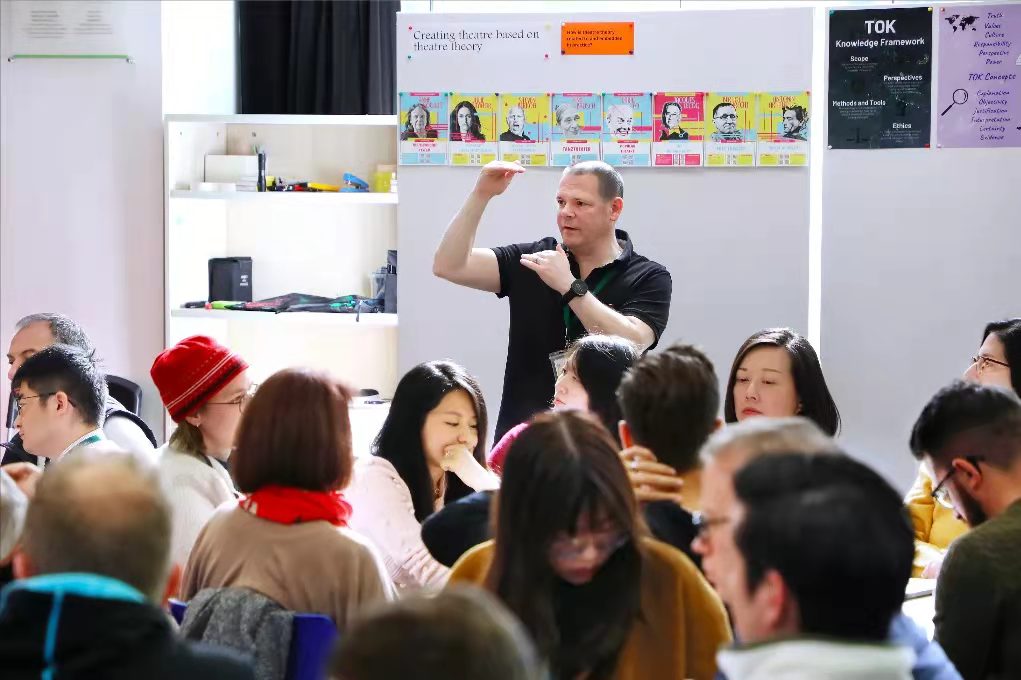
Middle School
Cultivating students to become ‘global citizens’ with an international perspective and enhancing their cross-cultural acumen is a mission that requires us, as educators, to first look at cultural differences with an open mind. By understanding and being respectful of cultural differences, we ultimately can manage and resolve the issues that arise from them in work and life.
—— Chris Zhuang
Director of Middle School Academic Affairs
At the Middle School, Ms. Chris Green, a school support and evaluation officer from the International School Council (CIS), led a full-day online workshop entitled "Intercultural Competence: Understanding the Impact of Oneself and Others on Team Building.”
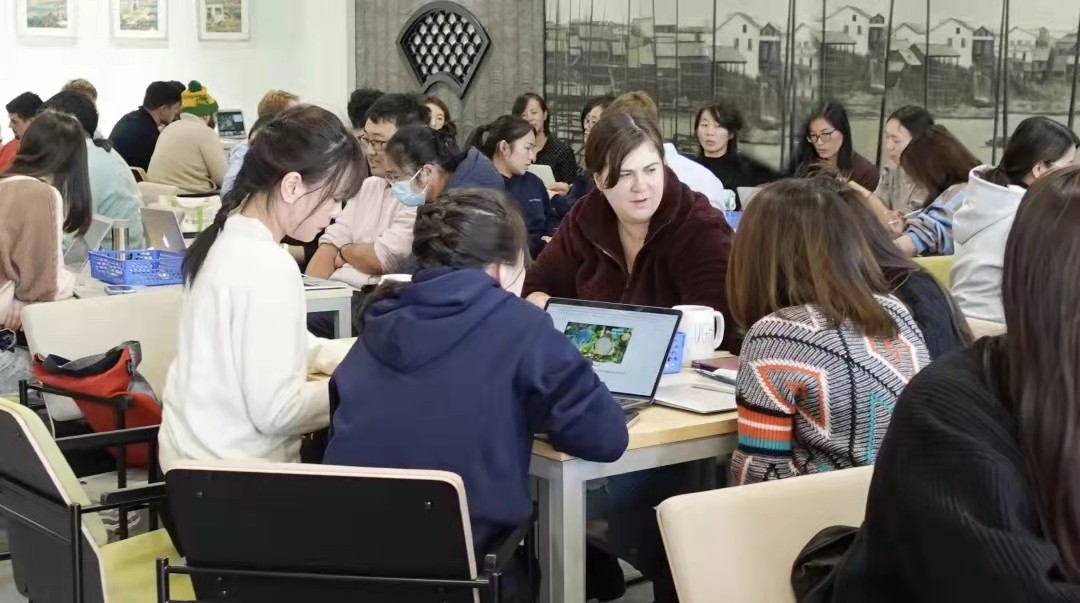
Intercultural competence is the capability to shift perspective and adapt behaviour to cultural differences and commonalities. Using the Intercultural Competence Development Scale (IDI), the workshop was organised by themes such as "cultural core," "cultural flexibility" and "cultural behaviour," addressing their impact on cross-cultural competence, and tailored for Pao School’s educational practices. Per the presenter’s requirements, the teachers formed 10 groups, with each group composed of teachers with different cultural backgrounds. The teachers in each group discussed their respective cultural habits and customs, and then shared them with the larger group.
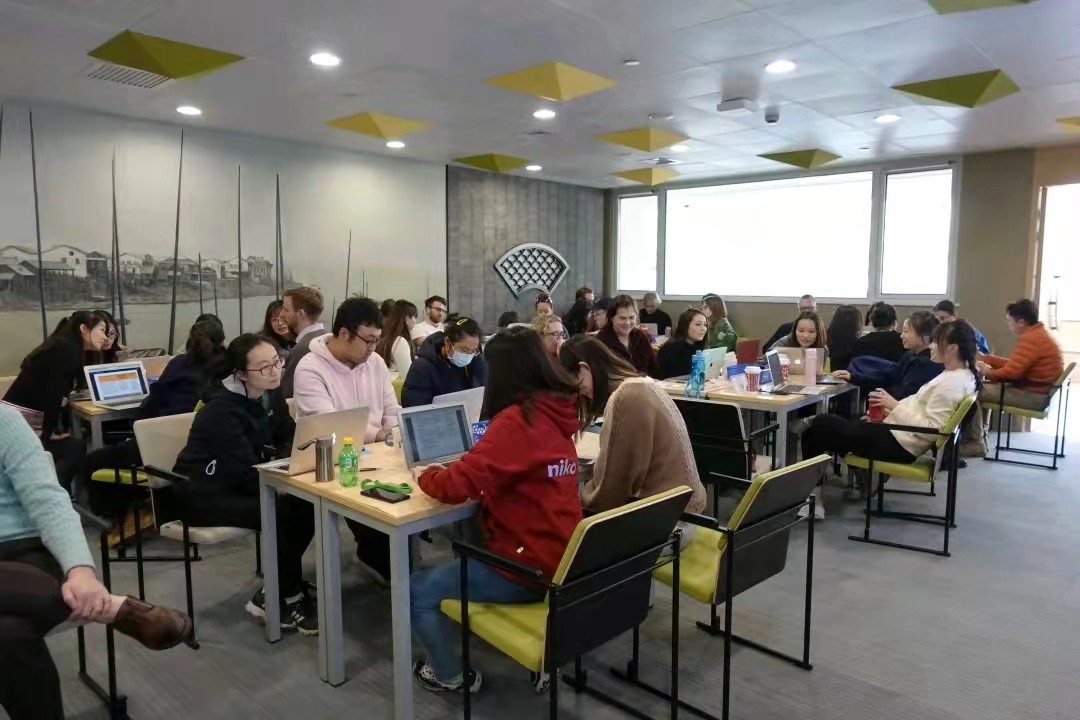
This workshop was highly beneficial for enhancing cultural understanding and tolerance among teachers in the Middle School. Intercultural competence is also an essential skill for working alongside those from a different background, as intercultural understanding is at the core of successful communication and collaboration. Therefore, fostering an international perspective with intercultural competence is one of the three major missions of Pao School. The Hongqiao campus hopes that bolstering teachers’ intercultural literacy will enrich the learning experience for Pao School’s students. Through leading by example, teachers displaying strong intercultural abilities can display the skills that students need to become citizens of the world, and ultimately achieve success in their lives.
Primary School
At the Primary School, the day had a number of key focuses, including learning more about exceptional learners, collaborative learning in groups, curriculum specific sessions, first aid training and training in technology use.
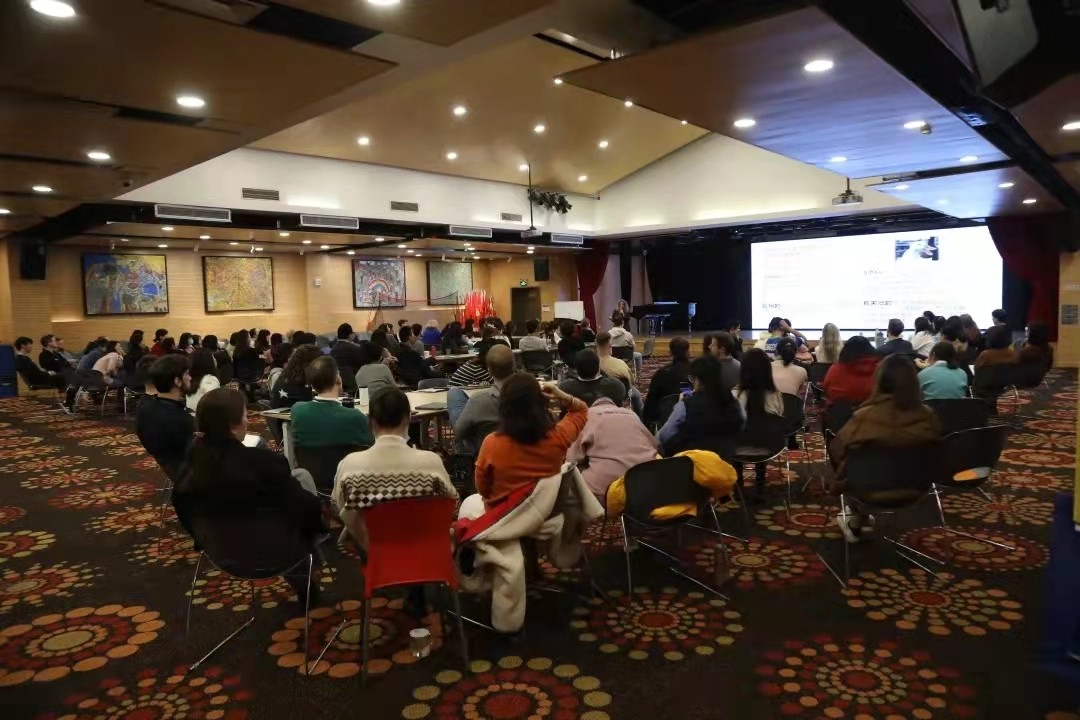
In the morning, staff took part in a session led by external expert Dr Shari Rosen. The session was organised by Eva Tuecking, Head of Primary Learning Support, who had also held a session on the same topic earlier in the week. Before the session, Ms. Tuecking discussed the topic extensively with Dr. Rosen, allowing the training to be specifically tailored to the school’s needs. The Friday session allowed the teachers to take a deeper dive into this topic and build on their previous knowledge, with staff learning more about how to implement individualised learning.
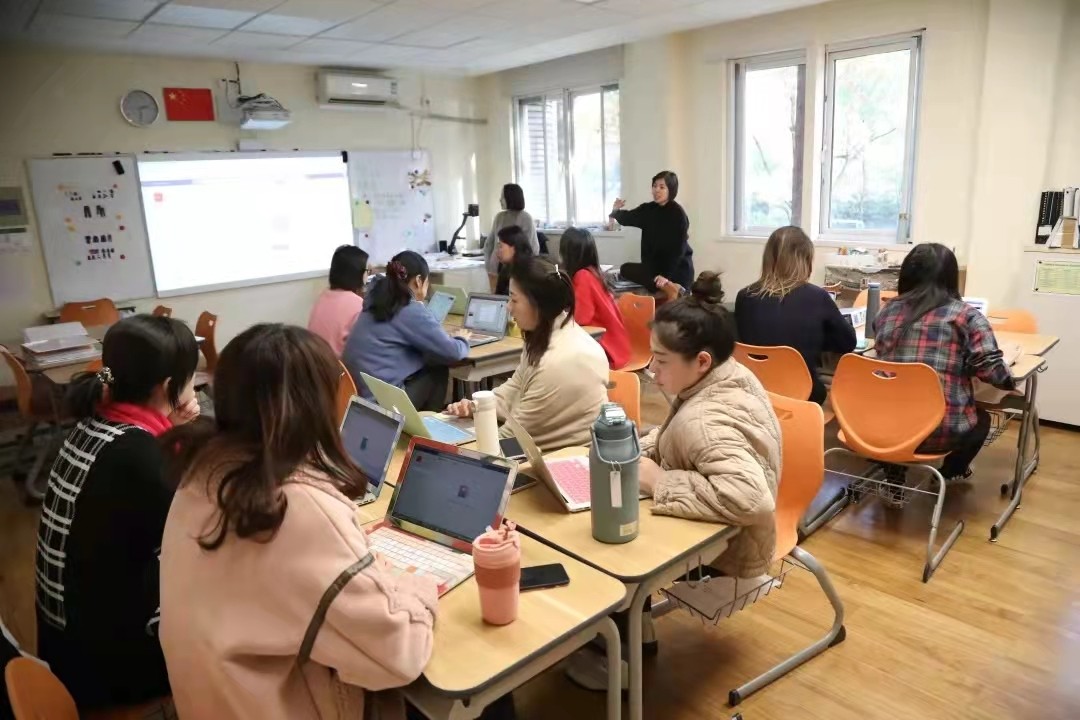
Chinese staff took part in a session entitled Collaborative Learning in Groups, organised by Lily Jin, Primary Professional Development Facilitator. Much like the earlier PD session, the training was an expansion of theoretical training undertaken last semester on group work in the classroom. Ms Jin invited an experienced guest teacher, Xu Li, to give a lecture to staff, sharing case studies, strategies and theories on in-classroom cooperation. The lecture was also supported by an experienced Pao School maths teacher, Jane Chen, who provided practical guidance on starting to incorporate collaboration into the classroom. For example, the group discussed how to choose methods and implement them.
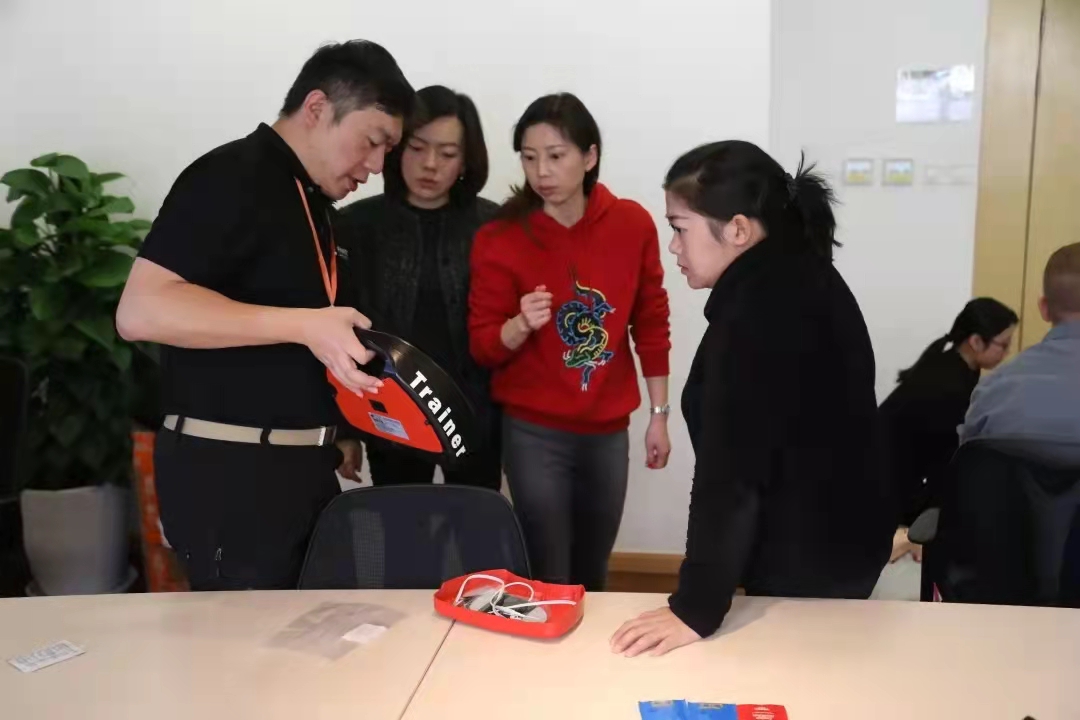
Staff also used the time to renew and develop important skills, such as use of technology for teaching and learning. The PD day focused on the use of a shared digital notebook for their classes, which can be used for teacher-teacher collaboration and teacher-student communication. In particular, the session taught teachers how to use the notebook to assign work and give feedback to students, alongside the various features of the technology.
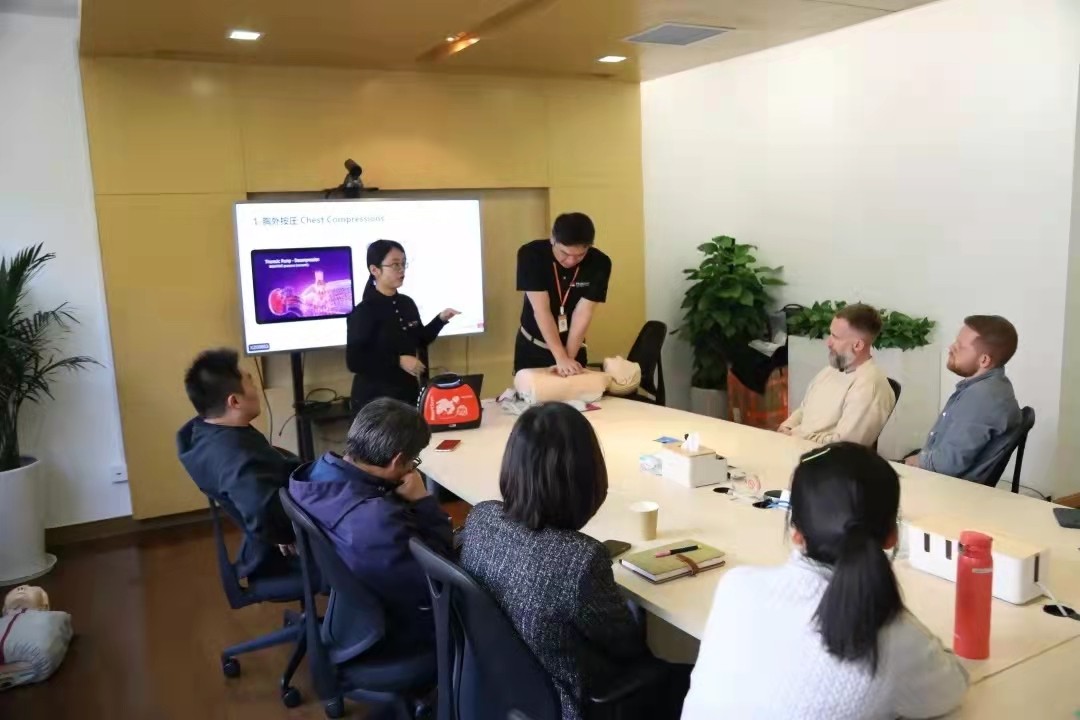
Selected staff members, such as the school’s nurses and swimming teachers, also took part in first aid training. The training introduced staff to the Primary School’s new automated external defibrillators (AED) and gave basic CPR training. The AEDs were generously donated by a parent through the Pao School Foundation and will be an invaluable addition to first aid resources at the school.
These sessions help teachers refocus their thoughts and subsequent practice to support our students in becoming more culturally competent and understand the positive impact they can have on the communities they live in, as well as helping them develop the knowledge and skills to take action.
- Duncan Weller
Dean of High School Student Life